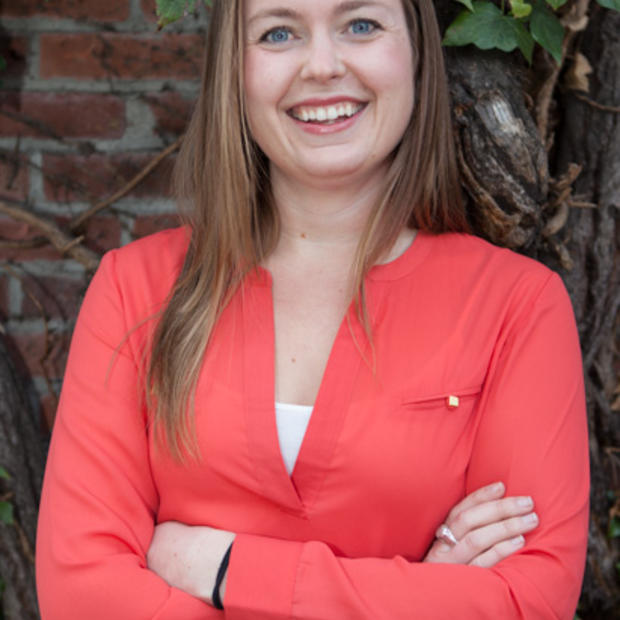"If this book threatens your faith, then your faith is not built on a rock," announced Reza Aslan Monday night. "It's built on sand." Aslan was speaking with award-winnning religious scholar Lesley Hazleton, before a standing-room only crowd in the auditorium of Seattle's iconic downtown public library. His arrival in Seattle marked the end of the first full business day after now-infamous Fox News anchor Lauren Green had taken the Muslim-turned-Christian-turned-Muslim Iranian-American to task for writing "Zealot: The Life and Times of Jesus of Nazareth."
"You're a Muslim, so why did you write a book about the founder of Christianity?" Green had asked, looking pointedly up from her notes.
Aslan, who spent the entire interview trying to convince Green that they should be talking about the contents of the book rather than his own religious affiliation, had a few reasons: Religion degrees from Santa Clara, UC Santa Barbara and Harvard; not to mention an international bestseller about Islam. By the time Aslan went to bed on Monday, one YouTube version of the interview had more than 1.5 million views.

Aslan chats with a fan at the Seattle Public Library after his Monday talk.
It was an ironic line of questioning. As Aslan pointed out, Green — a religion reporter for Fox — is a devout Christian. And that didn't stop her from penning an essay about Islam in 2011. "Is there something in Islam that makes believers more susceptible to radicalization?" the article asked. Incidentally, Hazleton, a Jew, penned her own award-winning biography of Muhammed.
But the viral squabble exposed something much more interesting than Green's underlying hypocrisy. It reminded us of something fundamental about how Americans perceive religion. It is a core part of their identity. Like Lauren Green, seven out of ten Americans self-identify as Christian. As an American teen in Southern California, disenchanted with the dispassionate Islam his family practiced at home, becoming a fundamentalist Christian was the most American thing Aslan could have done. And so he embraced it.

A packed house files out of the Seattle Public Library auditorium Monday.
It was only years later, reading up on ways to support himself in religious debates, that he began to uncover asynchronicities in his new faith; that he began to tilt back towards Islam.
As Aslan sees it now, religion is a language, not an absolute; a set of phrases and symbols that allow you to communicate about the transcendent. And he has an intellectual flowchart to help others find their way to his own conclusions. 1. Do you believe that something exists beyond the physical world? 2. If yes, does that matter to you? Do you want to explain and understand and experience that idea? 3. If so, you need a language and a frame so that you can describe it to yourself and your community. "And that's what religion is."
"I think and feel in Islam," he explained Monday, but it doesn't matter what language you choose.

Aslan shakes hands with a fan during the book signing after his talk.
So what does all this mean about how Aslan's book "Zealot" actually portrays Jesus, a question ironically marginalized by the Fox News debacle? The Jesus that so fascinated Aslan, he told Seattleites, was not the divine Jesus, but the human, political Jesus: A Jewish peasant from a town so small it wasn't even on the map, "fundamentally shaped by the tumultuous era in which he lived." (A Jew in a region razed by Romans.)
"This is a man whose entire ministry was based on reversal of the social order," Aslan explained. "He is talking about a world where the poor become rich and the rich become poor. Reconcile that with the Republican platform." (Aslan himself identifies as neither Republican, nor Democrat.)
"Do we see Jesus as an early kind of Muslim brother?" Hazleton asked early on, the tenacity of her question masked only slightly by the husk of a British accent turned throaty after years of smoking.
Aslan hemmed and hawed for a bit about the purely historical and factual nature of his book, but eventually bit hard at her hook: "If you do not see the parallels between first century Palestine and Jesus' role in it and what's going on now between Israel and Palestine, then you're living under a rock."
"Jesus was a poor illiterate peasant from the backwoods of Galilee," he continued, who took on the Romans and ultimately lost. "I think there's probably a great many Palestinians who would be familiar with that story."
It is a story that resonates perhaps most strongly with Aslan himself, who gave the most earnest and insightful explanation so far of his own psychology to the packed auditorium at the Seattle Public Library. "That dude was compelling and that's why I've spent so many years trying to draw him out," he said.
"I wanna be like him."

